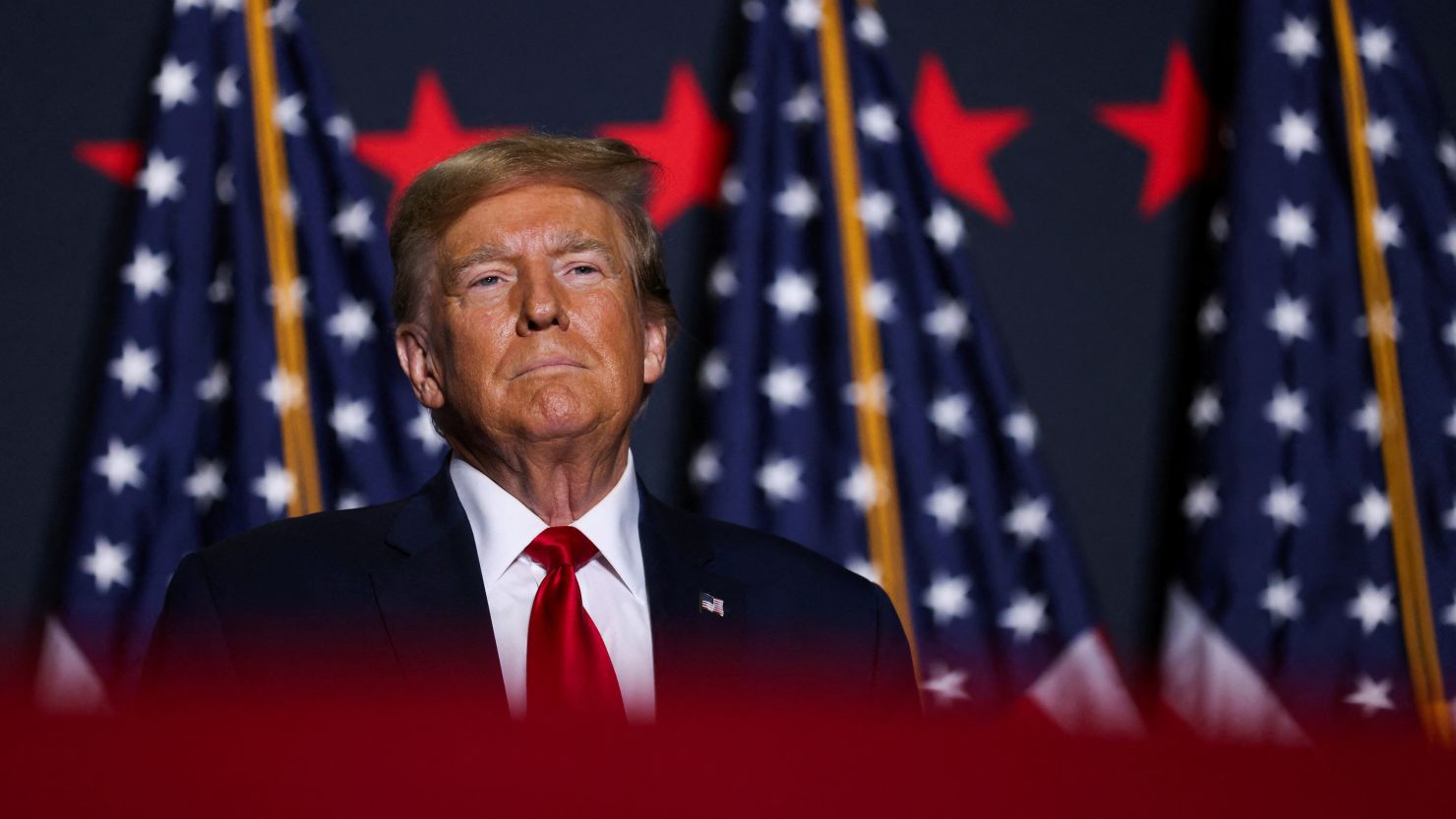Days before South Carolina’s Republican presidential primary, former President Donald Trump’s campaign has released an ad attacking rival Nikki Haley over her supposed stance on the state’s gasoline tax when she served as governor.
But the Trump ad has the same problem as previous attacks from former Republican candidates in the 2024 race it leaves out critical context about Haley’s position on the gas tax, omitting key comments to make her sound like the unequivocal tax-hiker she never was.
Facts First: The Trump ad fails to mention that Haley said as governor that she would only sign an increase in South Carolina’s gas tax as part of a package that also included a much larger reduction in the state income tax, leaving residents with a substantial net tax cut. The state economic board estimated in 2015 that Haley’s proposal would have saved the average taxpayer hundreds of dollars per year once it was fully implemented. The proposal was swiftly dismissed by state legislators because even some other Republicans thought it would cause the state to lose too much tax revenue. And the state gas tax was never increased during Haley’s time as governor, which ran from 2011 to 2017.
Previous context-free attacks about Haley and the gas tax were fact-checked by CNN and other media outlets long before the release of this Trump ad.
What the Trump ad leaves out
The Trump ad plays a clip of Haley saying this: “Let’s increase the gas tax by 10 cents over the next three years.”
That is a real quote is from Haley’s State of the State address in January 2015. But the ad did not explain that Haley also said in this part of the speech that she would only approve the increase if it came to her in a “three-part package deal,” along with a restructuring of the state Department of Transportation, and, critically, a reduction in the state’s top income tax rate from 7% to 5%.
Here’s a fuller quote from Haley’s 2015 speech. The words in bold were the only ones the Trump ad included.
“Let’s increase the gas tax by 10 cents over the next three years, and let’s dedicate that money entirely toward improving our roads. That will keep our gas tax below both Georgia and North Carolina. And we can do it without harming our economy – because when coupled with the 30% income tax cut, it still represents one of the largest tax cuts in South Carolina history. Now, I hope everyone listened carefully to what I said: this is a three-part package deal. In order to get my signature on any gas tax increase, we need to restructure the DOT, and we need to cut our state income tax by two percent. If we do all of those things, we will have better roads and a stronger economic engine for our people. That is a win-win.”
Haley made the proposal for the paired gas tax hike and income tax cut at a time that some state legislators were pushing for a hike in the gas tax without a large income tax cut, seeking to raise more money to improve the state’s crumbling roads. The state had one of the lowest gas taxes in the country at the time, 16.75 cents per gallon, and that tax had not been increased since 1987.
Haley did not end up signing any gas tax increase. The Republican-controlled legislature passed an increase in May 2017, overriding Republican Gov. Henry McMaster’s veto, more than three months after Haley resigned to become Trump’s US ambassador to the United Nations.
Haley’s debate exchange with Scott
The Trump ad claims that Haley told a “lie” when she told South Carolina Sen. Tim Scott at a Republican presidential debate in September 2023 that “I fought the gas tax in South Carolina.”
But Haley’s claim is at very least defensible.
By 2015, Haley had clearly abandoned her previous categorical opposition to increasing the gas tax. But even after she proposed pairing a gas tax increase with a bigger income tax reduction, she continued to fight various legislative proposals for gas tax increases – threatening to veto bills that would have increased the gas tax without also making what she thought were sufficiently big income tax cuts.
When Scott brought up her proposal for a 10-cent gas tax increase, Haley said that it came at a time she was being pushed by “the establishment and the companies” to raise the tax, and that she had responded, “If you will give me three times the deduction in income tax, then I will look at your gas tax…Which is why it didn’t happen.”
Haley did some spin there. She didn’t merely say in 2015 that she would “look at” a gas tax hike if legislators also delivered that big income tax cut; rather, she said she would sign such a hike (if it also included the bureaucratic reforms she wanted).
But Haley’s debate account of her position was mostly accurate, not a “lie.”




